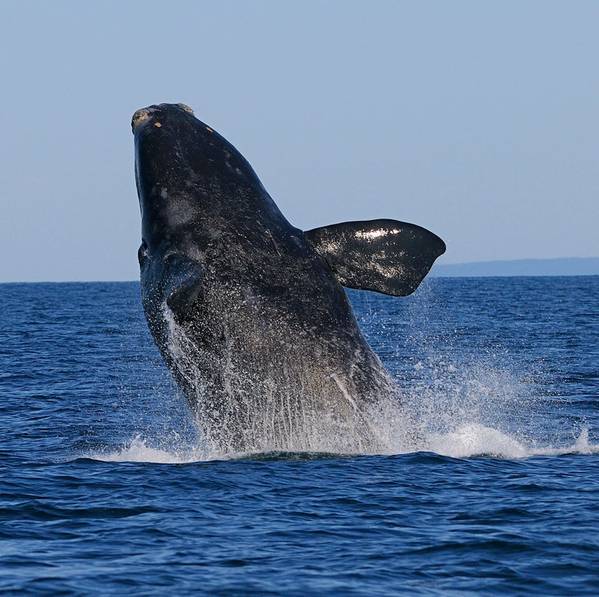
The US Bureau of Ocean Energy Management (BOEM) and the National Oceanic and Atmospheric Administration (NOAA) Fisheries have released a final joint strategy to protect and promote the recovery of endangered North Atlantic right whales while responsibly developing offshore wind energy.
The strategy builds on existing mitigation measures to protect North Atlantic right whales from the potential impacts of offshore wind development and was developed to support the Biden-Harris administration's goal of deploying 30GW of offshore wind by 2030.
North Atlantic right whales are approaching extinction. There are approximately 360 individuals remaining, including fewer than 70 reproductively active females.
Immediate impact mitigation efforts include avoiding leasing in areas that may impact potential North Atlantic right whale habitat and high use areas and providing guidance to developers on conducting robust sound field verification to ensure that noise levels expected from offshore wind activities do not exceed thresholds set for certain activities.
“Right whales are endangered, and climate change is impacting every aspect of their survival – from changing ocean habitat, prey availability and affecting migratory patterns – making the transition to cleaner, renewable energy critically important,” said NOAA Fisheries Assistant Administrator Janet Coit. “Working together on this strategy leverages the best available scientific information to inform offshore wind management decisions while conserving and recovering the species.”
Federal agencies are already undertaking a number of activities that support the strategy, including:
BOEM, NOAA Fisheries, and the Department of Energy are supporting the rapid development and deployment of advanced new technologies that can further the ability to detect, monitor, and avoid negative interactions between marine mammals and offshore wind facility construction and operations.
This effort includes working in partnership with the Regional Wildlife Science Collaborative for Offshore Wind on a series of workshops to assess the science, tools, methods and technologies for monitoring marine mammals during offshore wind construction activities.
BOEM and NOAA Fisheries are making significant investments of Inflation Reduction Act (IRA) funds to conserve and recover endangered North Atlantic right whales. BOEM has committed over $13.8 million in IRA funding toward acoustic impact modeling, passive acoustic monitoring and various North Atlantic right whale-related studies.
NOAA Fisheries dedicated $82 million in IRA funding for investments in four major areas over the next three years to include monitoring and computer modeling of whale distribution, vessel strike risk reduction, on-demand fishing gear and enforcement efforts.
These investments will support the application of existing technologies – such as passive acoustic monitoring – to enable vessels to detect and avoid North Atlantic right whales and other large whales. They also support the development and evaluation of new technologies – such as those that use high-resolution satellite information – to transform North Atlantic right whale monitoring and improve understanding of the whales’ distribution and habitat use.
NOAA Fisheries formed a new partnership with the Center for Enterprise Modernization, a federally funded research and development center operated by MITRE. This partnership will focus on the development of technologies and engineering approaches related to whale detection, vessel strike avoidance and on-demand or “ropeless” fishing gear.



